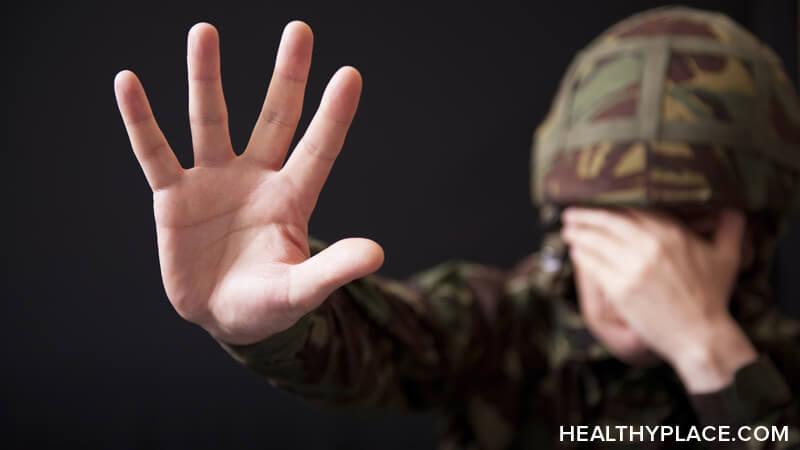You Can't Always Avoid PTSD Triggers: Here's One Way to Cope
 There will always be unavoidable triggers on our posttraumatic stress disorder (PTSD) journey. While we can become skilled at avoiding some PTSD triggers, coping with many other triggers, and adept at implementing self-care, there will still be times when our most challenging PTSD triggers are unavoidable.
There will always be unavoidable triggers on our posttraumatic stress disorder (PTSD) journey. While we can become skilled at avoiding some PTSD triggers, coping with many other triggers, and adept at implementing self-care, there will still be times when our most challenging PTSD triggers are unavoidable.
What to Do When You Can't Avoid PTSD Triggers
In this video, hear how I willingly chose to engage in a situation despite knowing that I would experience some of my most triggering, painful, feelings and memories. I explain how anticipating PTSD triggers does not make them go away, and the importance of finding supportive people who can help us through tough times.
APA Reference
Hollowood, T.
(2017, August 21). You Can't Always Avoid PTSD Triggers: Here's One Way to Cope, HealthyPlace. Retrieved
on 2026, February 28 from https://www.healthyplace.com/blogs/traumaptsdblog/2017/08/accepting-unavoidable-ptsd-triggers
Author: Tia Hollowood
I've just discovered this site and your blog, and your posts here are really helpful. Just knowing that I am not alone in having PTSD and struggling with it is super comforting. However, I have a question. What do I do if my friends don't seem to respect my triggers? Mine is kind of specific, and I've told all of my closest friends, but none seem to respect them, and, to put it simply, it hurts.
Hi Matiana, I'm glad you're finding some helpful information here. When you say your friends don't respect your triggers, what does that look like? Are they putting you directly into triggering situations or are they indirectly failing to support you?
For example, my friends know I am not comfortable in groups of unfamiliar people. If I disclose this to a friend who then invites me to their house, and I arrive to find several other strangers there, I'd see that as being placed directly into a triggering situation. However, being invited to a gathering is different. While I might feel anxious, or guilty declining, I haven't actually been triggered.
In either situation, I'm going to respond by saying I appreciate the invitation, but I'm not comfortable around strangers. If I'm already at their house, I'm going to leave.
Our friends might forget our triggers once in a while, and we might have to show respect for ourselves and our mental health by reminding them. If they still continue to create uncomfortable situations, despite your repeated communication of your concerns, it is time to decide how healthy the friendship actually is.
Does this make sense for your situation? Hopefully it is just a learning curve for you and your friends. T
Thank you for sharing this! You're openness and willingness to share can be so helpful and empowering to those that need to hear this. I love that you included a video for this post. " I explain how anticipating triggers does not make them go away, and the importance of finding supportive people who can help us through tough times." -- such an important reminder. Posts like these are strong tools.
Lizanne, thank you for taking the time to leave a comment. I have to tell you, I have always dreaded video blogs. Having you point out a video as a positive makes my day! Thank you.